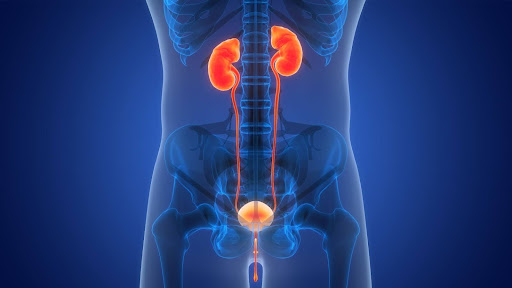
The body is a wildly complex system. Often, this can leave you wondering which part of your body correlates with different medical specialties. While the field of urology does deal with the kidneys and some disorders that affect them, some kidney issues should be treated by a nephrologist rather than a urologist. On the other hand, there are some conditions that urologists should treat rather than nephrologists. To clear up any confusion, here at Alliance Urology, we’re going to look at the difference between urology and nephrology.
What Are Urology And Nephrology?
Urology
According to the American Urological Association’s definition, urology is the field of medicine that specializes in diagnosing, treating, and managing diseases of the male and female urinary tract. The urinary tract includes the following parts:
- Kidneys
- Ureters
- Bladder
- Urethra
Urologists, the doctors who practice urology, have received extensive education and training in the urinary system. Urology is considered a surgical specialty, but urologists do much more than perform surgical procedures. Many urologists are in general practice and can treat a variety of urologic conditions. Other urologists have a specialty in a certain area, like urologic cancer, male infertility, or pediatric urology.
Nephrology
Nephrology is the field of medicine that focuses on diagnosing and treating diseases that affect the kidneys. Like urologists, nephrologists receive extensive education and training in their field. Unlike urology, the scope of nephrology does not include other parts of the urologic system. Nephrologists don’t deal with disorders of the male reproductive system either. The focus of nephrology is on the kidneys. A nephrologist may also deal with factors linked to kidney disorders, such as high blood pressure or heart disease. However, they would not treat these problems outside of their relationship to the kidneys.
Similarities
As you can tell, urology and nephrology do share certain characteristics. Sometimes, both urologists and nephrologists will share a medical practice because they may need to work together. However, even with overlapping factors, the two fields are distinct. The most common point of overlap is the fact that both urology and nephrology will treat kidney issues. But, there are differences in what aspects of kidney health are covered under each specialty.
When To See A Nephrologist
If you have a disorder that affects the way your kidneys function, then you should see a nephrologist. Nephrologists treat conditions like:
- Diabetes
- Chronic kidney disease
- Kidney infections
- Renal artery stenosis
- Kidney failure
- Interstitial nephritis
- Glomerulonephritis
- Polycystic kidney disease
If you have a kidney-related disorder that doesn’t fall under the umbrella of nephrology, such as chronic UTIs, then you may consider seeing a urologist.
When To See A Urologist
As we mentioned earlier, urologists deal with diseases and disorders of the male and female urinary tract. That includes the kidneys, but their expertise extends beyond just those organs. The scope of urology also includes the male reproductive parts: the testes, scrotum, prostate, and penis. That’s the difference between urology and nephrology.
Conditions Treated By Urologists
Urologists can treat male health conditions, female urologic conditions, and general urologic conditions. Some common conditions that a urologist can treat include:
- Urinary tract infections
- Urinary incontinence
- Difficulty urinating
- Erectile dysfunction
- Male infertility
- Kidney stones
- Bladder stones
- Low testosterone
- Prostate cancer
- Enlarged prostate
- Kidney cancer
- Penile cancer
- Testicular cancer
However, it’s important to keep in mind that this is just a short summary of conditions that urologists can treat.
Treatments And Services Provided By Urologists
Urologists can treat and manage the conditions listed above, as well as many that are not listed. A physician specializing in urology may offer the following services and treatments:
- Vasectomy
- Vasectomy reversal
- Lithotripsy for kidney stones
- Ureteroscopy
- Diagnostic testing
- Cancer treatments
- Penile implants
- Prostate biopsy
- Prostatectomy
- Varicocele correction
- Minimally invasive surgery
Alliance Urology Specialists is home to an expert team of urologists that are committed to providing comprehensive, compassionate care to adults with urologic disorders. We combine years of experience with the latest in diagnostic and treatment options. If you have concerns about your urologic health, or for more information about urology and nephrology, call our office at (336) 274-1114 to make an appointment.

